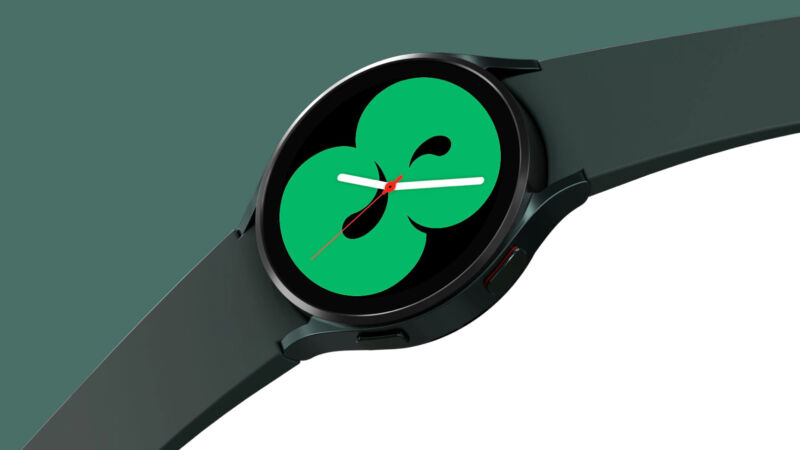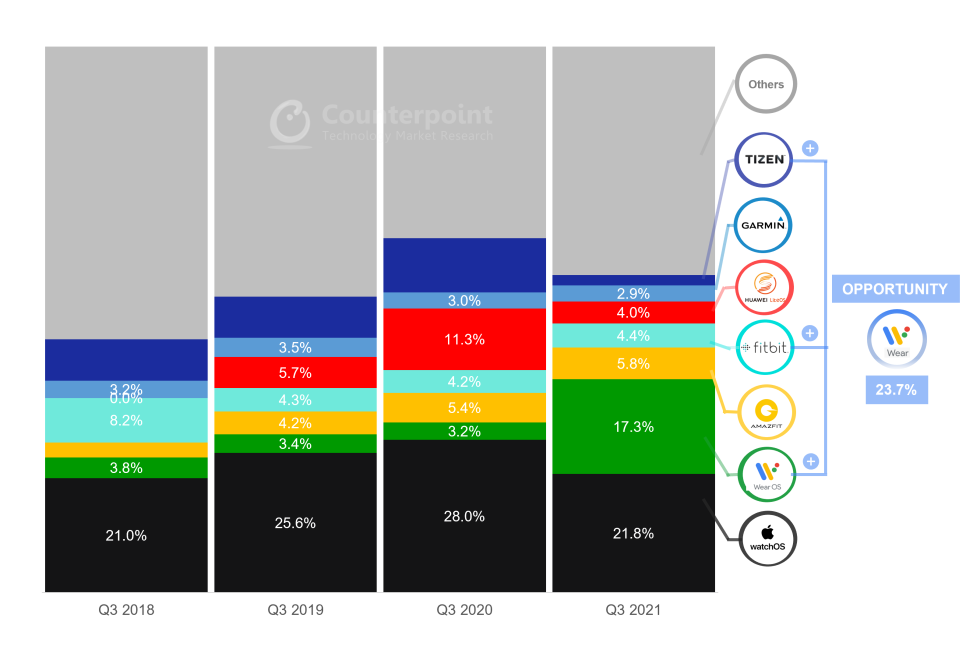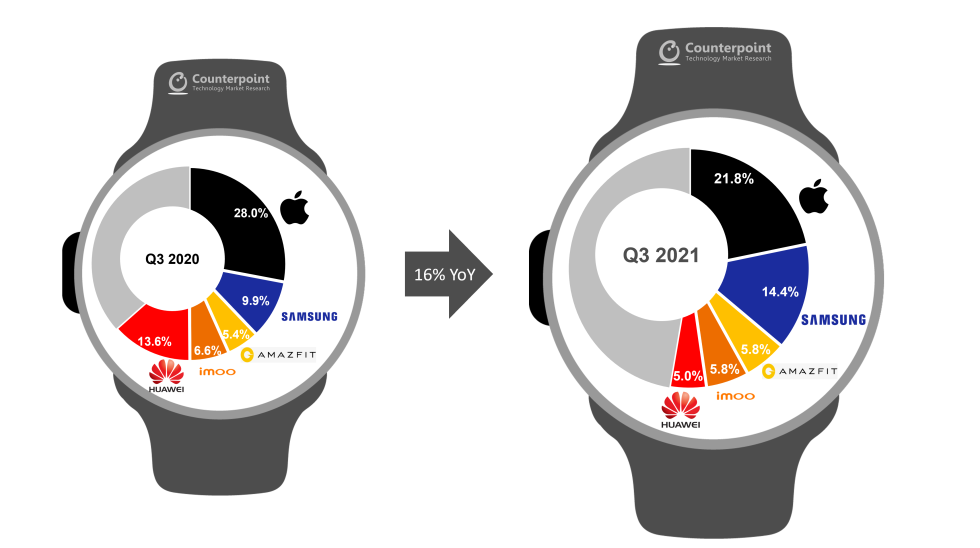
Counterpoint Research has a new report detailing the smartwatch market, and Wear OS is a huge winner. Just three months ago, Google and Samsung teamed up to resurrect Wear OS, with the new Wear OS 3.0 debuting on the Galaxy Watch 4. Counterpoint's latest data has the partnership down as a resounding success, with Wear OS market share rocketing from 4 percent in Q2 2021 to 17 percent in Q3 2021.
Google and Samsung's team-up was a complete reboot of both companies' smartwatch strategies. Google was floundering at the bottom of the sales charts, having seemingly lost interest in Wear OS for years. The last major OS release was Wear OS 2.0 in 2018, and that had been stagnating on the market for years. The major Wear OS tech partners from the early days, like Samsung, LG, Sony, and Motorola, had left the platform, with only fashion brands like Fossil hanging around to make watches. Qualcomm was the main SoC provider, and while Apple was revolutionizing the power you can get from a smartwatch SoC, Qualcomm wasn't really putting in a full effort and strangled the Wear OS market for years with sub-par chips.
Samsung left Google's smartwatch ecosystem after the initial release and struck out on its own with Tizen OS. Tizen is a Linux-based OS made by Samsung, built out of the ashes of other failed mobile Linux OSes, like Nokia's Maemo and MeeGo, Intel's Moblin, and Samsung's Bada and LiMo. The OS was described by one security researcher as "the worst code I've ever seen" and doesn't have a ton of third-party app support. Samsung's strength is in hardware, and unlike Qualcomm, Samsung's Exynos division has regularly been churning out flagship-class smartwatch SoCs using a modern transistor size and decent ARM CPU designs. Combining the two has meant pairing Google's OS, software, and app ecosystem with Samsung's hardware, marketing, and distribution prowess, a combination that built the Android phone juggernaut that exists today.

The partnership is already working out for both companies. Counterpoint says: "Thanks to the launch of the Galaxy Watch 4 series, Samsung achieved its highest quarterly shipments, narrowing the gap with Apple and reclaiming second place from Huawei." Samsung's market share is up from 9.9 percent to 14.4 percent, year over year.
Apple is still in first place with the Apple Watch, but Counterpoint says Apple's smartwatch market share is down 10 percent year over year in Q3, to 21.8 percent thanks to the delay of the Series 7 watch into Q4. It's a good bet that Apple's market share will go back up with the release of new hardware, but currently, Wear OS is within striking distance of the No. 1 spot, a position that was unthinkable just a year ago.
Wear OS probably still has some growth left in it, too. Right now Wear OS 3 is exclusively available on Samsung's Galaxy Watch 4, and with Google saying partners should have updates available in the second half of 2022, it seems like Samsung has a one-year exclusivity deal for the new OS. Qualcomm is planning a "next-generation" "ground-up redesign" of its smartwatch chips in 2022, so we'll probably see some non-Samsung OEMs jump on board with modern, competent smartwatch designs for Wear OS 3.

If we look to the smartphone market, another reason Android devices regularly outsell Apple is a lower price point, and Wear OS 3 isn't taking advantage of that yet. Counterpoint says that "one-third of smartwatches sold in Q3 2021 were priced under $100," and the research firm expects Samsung to tackle the market in a few years in an attempt to take the No. 1 OEM spot. The Galaxy Watch 4 starts at $249.99.
Google also needs to do something with Fitbit, which is currently 4.4 percent of the smartwatch market. Fitbit said it eventually plans to make Wear OS watches, as well.
reader comments
80